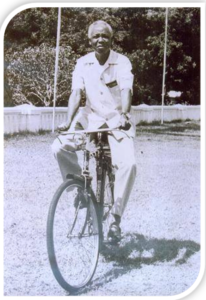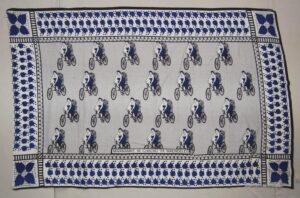Nyerere and Bicycles as Post-Colonial Self-Reliance

Dar es Salaam transitioned from a serene Zaramo fishing village to a metropolis on the Indian Ocean. Initially a symbol of colonial prestige under German rule, the British helped democratize cycling. After Tanzanian independence in 1961, under socialist President Julius Nyerere, bicycles gained new significance.
Nyerere, a proponent of self-reliance through his Ujamaa socialist policies, saw bicycles as more than just a means of transport—they were tools of empowerment and sustainability. He promoted the local production of bicycles, like those from the National Bicycle Company (NABICO) in the 1970s, to reduce import dependency and foster local industry. His efforts resonated with the global concept of “appropriate technology,” as advocated by economist E.F. Schumacher in his influential work, Small Is Beautiful. This concept emphasizes that simple, sustainable technologies should align with local needs and resources. Nyerere inspired many other African leaders in the early post-colonial era with his economic vision.

In the Dar es Salaam chapter of the Cycling Cities: The African Experience, Frank Edwards analyzes the strong post-colonial legacy to understand how and why bicycles have an enduring post-colonial legacy in this East Tanzanian port city despite, or even because of, many of the financial difficulties experienced by its citizens today.